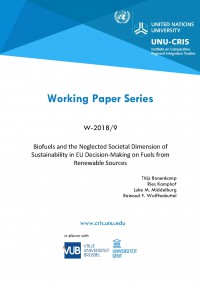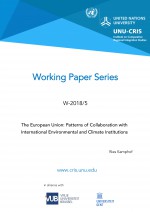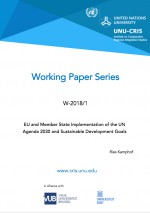Biofuels and the Neglected Societal Dimension of Sustainability in EU Decision-Making on Fuels from Renewable Sources

Biofuels, in the form of bioethanol and biodiesel, were the first viable option in the transition towards a large-scale renewable fuel economy with a reduced dependency on fossil fuels. Bioethanol has been successfully and remarkably smoothly introduced to the fuel infrastructure, owing to the fact that it: can be easily blended with petrol (in practice E10 and E85), can be used in conventional combustion engines and has 58% of the energy density of petrol (thus not dramatically impacting full-tank travel range). Similarly, biodiesel can be blended with regular diesel (B7 and B20). In contrast, the decision-making process on biofuels in the European Union (EU) has been particularly turbulent, including U-turns due to changing priorities and re-assessments of the environmental impacts (including side-effects). Energy security and socio-economic issues related to the agricultural sector have dominated the discussion, while the social dimension and continuity of intra-European mobility appear to have been pushed aside.
The two-stage research question addressed in this article is the following: 1) What political, institutional and technical factors enable or impede the scenario of mass-scale introduction of E85 and bioethanol flex-fuel automotive production in the EU and 2) how would the EU decision-making process be affected by the prospect of bioethanol leading the EU towards a methanol-based renewable fuel economy, through its potential to facilitate a seamless transition of the energy infrastructure while maintaining long-distance intra-European mobility?
The EU decision-making process concerning biofuels is analyzed. Subsequently, an assessment is made of the benefits of a non-disruptive change of the present fuel economy towards one based on energy from renewable sources, with an emphasis on the importance of the continuity offered by the use of liquid fuels. The possible role of bioethanol in realizing a methanol-based economy from renewable sources is investigated within this framework, both in terms of the fundamental technical concept and the potentially positive impact on the decision-making process in the EU.


